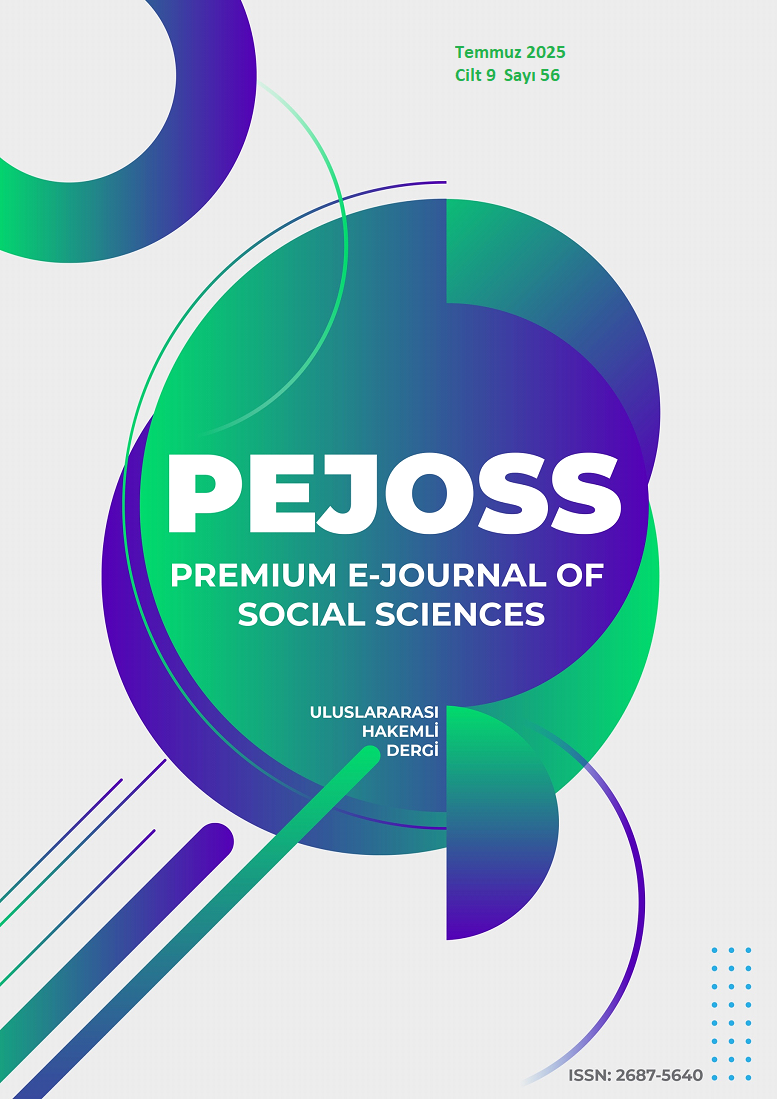The Impact of Artificial Intelligence on Organisations and Its Uses on Strategic Management
DOI:
https://doi.org/10.5281/zenodo.16449233Anahtar Kelimeler:
Yapay Zekâ, Stratejik Yönetim, Etik, Karar Destek Sistemleri, Dijital DönüşümÖzet
The advancements of AI technologies are transforming organisations by enabling more efficient, data-driven decision-making and enhancing customer experiences. However, the benefits of this transformation come with significant challenges, including—but not limited to—ethical concerns, workforce displacement, data privacy, and algorithmic bias. This paper critically examines how aı reshapes strategic management by addressing these issues. Furthermore, it highlights the often-underexplored practical difficulties in aligning organizational goals with market dynamics, balancing short-term performance with long-term sustainability, and managing resource allocation effectively. to bridge these gaps, a comprehensive aı-driven framework is proposed, incorporating data integration, advanced analytics, and decision support systems
İndirmeler
Referanslar
Andrzej, K., & Biniecki, J. (2015). Strategic Concept of Regional Land Use Policy: Śląskie Voivodeship Example. Studia Regionalia, 43-44, 129-150.
Azzam, M., & Beckmann, R. (2022). How AI Helps to Increase Organizations' Capacity to Manage Complexity. IEEE Transactions on Engineering Management.
CB Insights. (2017). AI Will Put 10 Million Jobs at High Risk. CB Insights.
Davenport, T. H., & Kirby, J. (2016). Only Humans Need Apply: Winners and Losers in the Age of Smart Machines. Harper Business.
Haenlein, M., & Kaplan, A. (2019). A Brief History of Artificial Intelligence. California Management Review.
Kaplan, A., & Haenlein, M. (2019). Siri, Siri, in My Hand: Who's the Fairest in the Land? Business Horizons.
Kolmar, C. (2023, January 11). 23+ artificial intelligence and job loss statistics. Zippia. https://www.zippia.com/advice/ai-job-loss-statistics/
Marr, B. (2018). Data-Driven HR: How to Use Analytics and AI to Drive Employee Engagement, Productivihuy, and Success. Kogan Page Publishers.
McCarthy, J. (2007). What is Artificial Intelligence? Stanford University.
Minsky, M. (1961). Steps Toward Artificial Intelligence. Proceedings of the IRE.
Nagy, G. (2020). Ethical and Legal Challenges of Artificial Intelligence in Nuclear Medicine. Annals of Allergy, Asthma & Immunology.
O'Leary, D. E. (2013). Artificial Intelligence and Big Data. IEEE Intelligent Systems.
Paschen, J., Pitt, C., & Kietzmann, J. (2020). Artificial Intelligence: Building Blocks and an Innovation Typology. Business Horizons.
Stanford University. (2016). Artificial intelligence and life in 2030: One Hundred Year Study on Artificial Intelligence: Report of the 2015–2016 Study Panel. https://ai100.stanford.edu/2016-report
Tariq, M. U., & Abunimah, A. A. (2023). Proposed Strategic Framework for Effective Artificial Intelligence Adoption in UAE. Abu Dhabi School of Management.
Trunk, A., Birkel, H., & Hartmann, E. (2020). On the Current State of Combining Human and Artificial Intelligence for Strategic Organizational Decision Making. Journal of Business Economics.
Turing, A. M. (1950). Computing Machinery and Intelligence. Mind.
Venkatesh, V. (2021). Adoption and Use of AI Tools: A Research Agenda Grounded in UTAUT. Annals of Operations Research.
Wachter, S., Mittelstadt, B., & Floridi, L. (2017). Why a Right to Explanation of Automated Decision-Making Does Not Exist in the General Data Protection Regulation. International Data Privacy Law.
West, D. M. (2018). The Future of Work: Robots, AI, and Automation. Brookings Institution Press.
Wilson, H. J., Daugherty, P. R., & Morini-Bianzino, N. (2018). The Jobs That Artificial Intelligence Will Create. MIT Sloan Management Review.
Wright, S. A., & Schultz, A. E. (2018). The Rising Tide of Artificial Intelligence and Business Automation. Business Horizons.
Zhang, B., & Dafoe, A. (2019). Artificial Intelligence: American Attitudes and Trends. PLoS ONE.
Zhang, X., Antwi-Afari, M. F., Zhang, Y., & Xing, X. (2024). The Impact of Artificial Intelligence on Organizational Justice and Project Performance. Buildings.
Zheng, N., Liu, Q., Ren, P., Chen, H., Yu, Y., & Ge, S. (2017). Hybrid-Augmented Intelligence: Collaboration and Cognition. Frontiers of Information Technology & Electronic Engineering.
İndir
Yayınlanmış
Nasıl Atıf Yapılır
Sayı
Bölüm
Lisans
Telif Hakkı (c) 2025 Premium e-Journal of Social Sciences (PEJOSS)

Bu çalışma Creative Commons Attribution 4.0 International License ile lisanslanmıştır.


